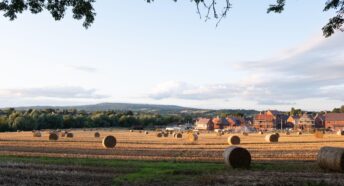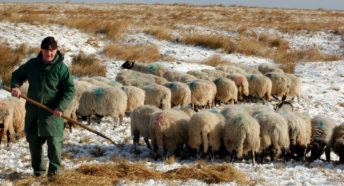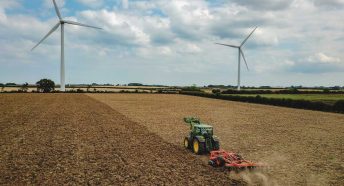Innovation on county farms
County farms, council-run farms that can act as training grounds for new farmers, are trying new ways to farm and be sustainable.
Whitehall Farm is a 100-hectare farm owned by Cambridgeshire County Council and managed by Stephen Briggs on a 15-year tenancy. But this isn’t your average farm. This is a county farm – farms usually run by the council to help support new farmers, and Stephen has taken an innovative agroforestry approach to build the profitability, resilience and sustainability of the farm.
Stephen has inter-planted arable crops with 4,500 apple trees, following a model of planting trees around farmland, or agroforestry. These provide an income, and protect soil and crops from the risk of extreme weather. With the ever-growing risks of the climate emergency, this kind of protection is invaluable – now and for the future. And the farmland is diverse; wildlife and birds such as tree sparrows, reed buntings, yellowhammers, English partridge and owls are flourishing in the natural habitat farmland.
Income diversity alongside biodiversity
Stephen and his wife Lynn have also tried out other ways to generate income, opening Harvest Barn farm shop and café on their county farm site. The shop sells local and certified organic fresh fruit and vegetables from the farm as well as locally sourced lamb, beef and pork, cakes and biscuits, jams and preserves.
Stephen said: ‘Thanks to the county farms system, I’ve been able to run my own farm and try an innovative and successful soils-based farming approach. The support I’ve received from my local county council has been invaluable. I’d like to see all local authorities encourage new entrants with fresh ideas and perspectives like myself to go into agriculture to keep this wonderful resource in the community as a vital asset. There are economic incentives for councils too, as the rent from our county farm and its innovative diversifications goes straight back to the county council, helping fund frontline services.’
The CPRE view
Graeme Willis, our agriculture lead, said: ‘Whitehall Farm is a great example of a county farm having an economic, environmental and social impact. Our research shows that the number of county farms in England continues to drop at a time when these wonderful assets should be protected, and invested in, to ensure they’re available for future generations.’
We at CPRE are calling on the new government to introduce legislation to stop the sale of county farms, sometimes referred to as county farms, and to give them a new purpose. We recognise their value to rural communities, and would like to see a package of measures and new funding to enable councils to enhance, invest in their estates and better promote them. And we want county farms to be recognised locally and nationally for their potential to address the climate emergency and deliver wider public benefits to communities.
Dwindling county farm numbers
Council-owned county farms are in decline, which means future generations of young farmers – and our communities more broadly – won’t benefit from these wonderful assets. This is evidenced in a 2019 report, Reviving county farms, prepared for CPRE by the New Economics Foundation, Shared Assets and Who Owns England?
The report shows that over 50% of county farm estates have disappeared over the past 40 years, with sales of land especially high in the last two years. There are several reasons for this; councils have felt the pinch of austerity measures, making the sale of farmland more appealing, and some have been deterred by the requirement to experiment with new income streams or business models.
But these farms can still offer brilliant benefits to those councils who retain them. Those councils that have protected and even expanded their county farm estates report positive results, including in delivering benefits to local communities such as providing locally-grown food for nearby schools.
In fact, seven out of nine councils that responded to the survey featured in the report gave details of environmental and social benefits provided by their county farms. These ranged from tree planting to local education initiatives to supporting new farmers – all reasons why we at CPRE support county farms, and will continue to call for legislation that encourages their development.
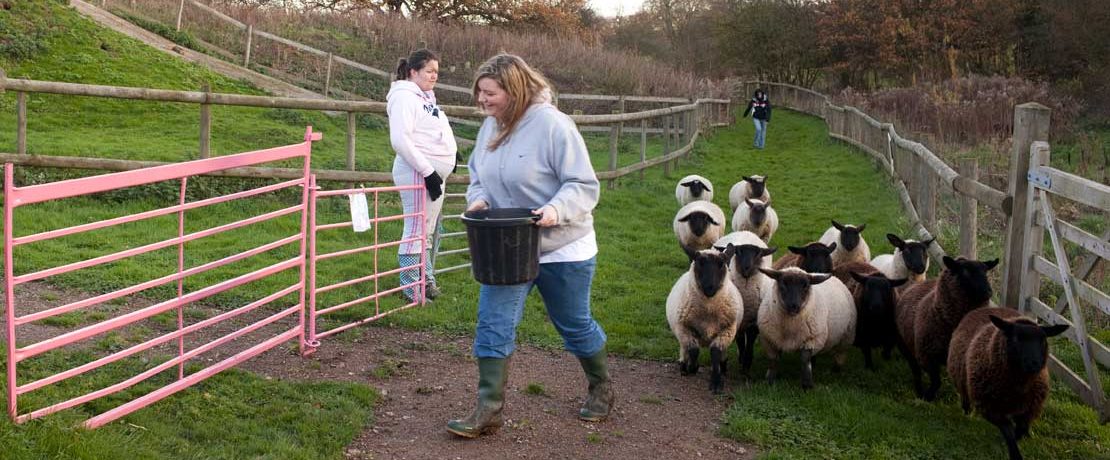



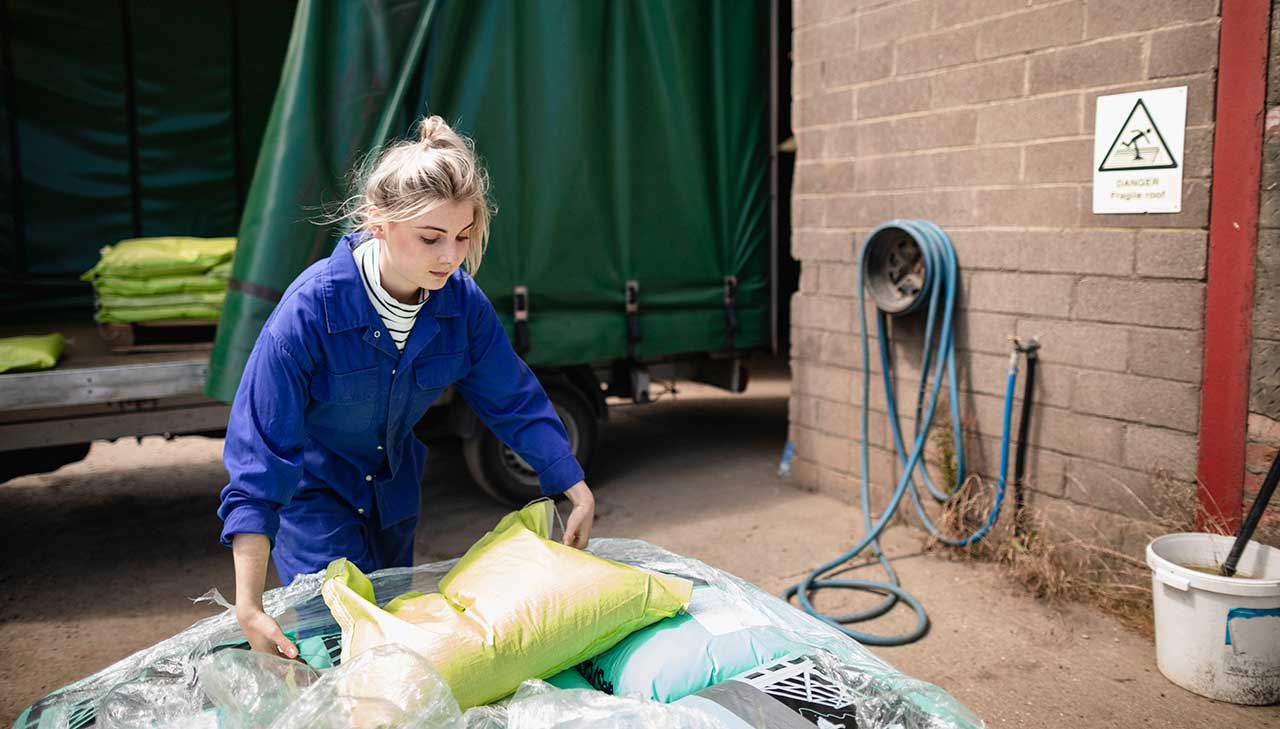
 3 min read
3 min read 